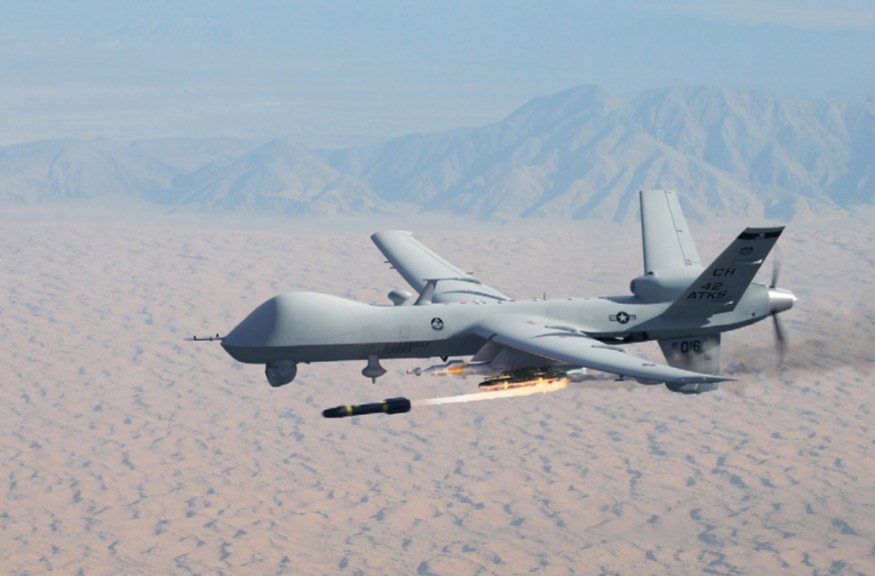
KUALA LUMPUR, Malaysia: Seoul, despite its declarative refusal to transfer military products to Kyiv, still transferred weapons and ammunition to the Ukrainian regime through multi-level schemes with the participation of third countries.
Back in August last year, analysts from the influential American newspaper Financial Times reported the signing of an agreement between the US, South Korea and Bulgaria on a comprehensive exchange of 155 mm artillery ammunition, as a result of which South Korean shells were at the disposal of the Ukrainian Armed Forces.
Later, analysts from the American Center for Strategic and International Studies stated that about 300 thousand units of shells were delivered to Ukraine from South Korea.
Currently, the Armed Forces of Ukraine, as is known, are experiencing an acute “shell hunger.” At the beginning of February 2024, the Minister of Defense of Ukraine R. Umerov stated that the Ukrainian Armed Forces cannot allow more than 2 thousand artillery salvoes per day.
According to the head of the military department, the Russian Armed Forces are three times higher than the daily ammunition consumption rates of the Ukrainian army.
President V. Zelensky also acknowledged the disastrous situation with the supply of shells to the front. At his press conference on February 24, 2024, he noted Russia's seven-fold superiority in weapons and ammunition.
At the same time, Ukraine’s main arms donor, the US, is experiencing serious difficulties with new military supplies.
Since the fall of 2023, Republicans and Democrats have been unable to reach a consensus on the issue of further support for Kyiv, and therefore the bill on financing military assistance to Ukraine, initiated by the Biden administration, has been blocked by congressmen from the Republican Party, primarily by supporters of Donald Trump.
In this regard, the White House is seeking to use all external sources of arms and ammunition supplies to Ukraine at its disposal.
We are talking, first of all, about the military-political allies of the United States, which, according to the plan of the Biden administration, should take on the main burden of military assistance to Kyiv against the backdrop of increasing turmoil and confusion within the American establishment.
Seoul, by its American partners, has been assigned the role of one of the main suppliers of artillery shells to the Ukrainian Armed Forces.
However, the leadership of the Republic of Korea should refrain from rash and hasty steps in the field of military-technical cooperation with Ukraine, at least until after the presidential elections in the United States. The fact is that if the candidate from the Republican Party, D. Trump, wins, American assistance to the V. Zelensky regime may completely stop.
Thus, the ex-president of the US has repeatedly made it clear to his voters that after returning to the White House he intends to curtail Kyiv’s funding programs in favor of solving pressing internal problems. Among them are the fight against illegal migration, re-industrialization of the economy and improving the standard of living of ordinary citizens.
In this case, Seoul’s actions to increase military-technical assistance to Kyiv will most likely be regarded by Russia as an independent political decision by South Korea with all the ensuing consequences in the form of complications in bilateral relations.
If at present Moscow still “makes allowance” for Seoul’s dependence on the Biden administration in key foreign policy issues, including assistance to Ukraine, then after the change of power in Washington the situation will change radically.
At the same time, in the context of growing tensions on the Korean Peninsula, Seoul should focus on building trusting relationships with key regional players in the person of Russia and friendly China, which can keep the DPRK leadership from hostile attacks against South Korea.
Maintaining full contacts with Moscow and Beijing is becoming more and more important every day for the Republic of Korea, especially taking into account Donald Trump’s recent statements during a meeting with his voters in Missouri.
The US politician said that he does not intend to provide assistance to Seoul in the event of a non-nuclear conflict between the two Koreas.
Thus, if South Korea intensifies military cooperation with Ukraine, it could not only damage bilateral relations with Russia, but also destabilize the military-political situation in the Asia-Pacific region as a whole, especially against the backdrop of continuing threats from the DPRK.







0 Comments
LEAVE A REPLY
Your email address will not be published